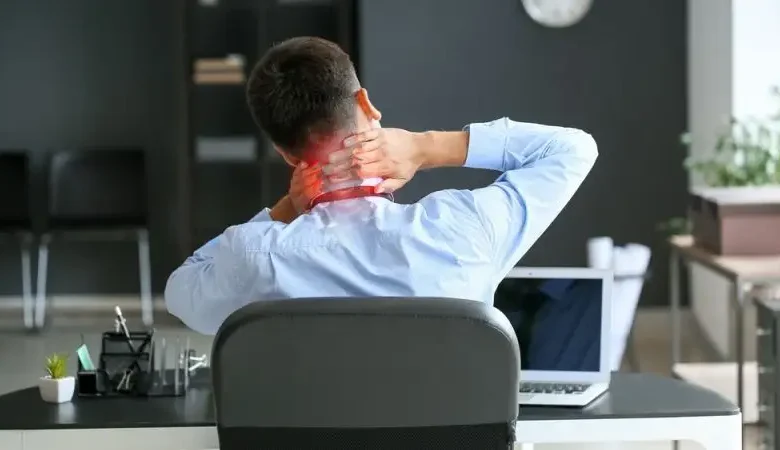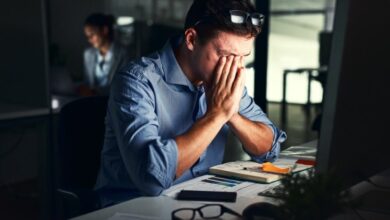Experts explain how back pain could be due to office chairs

Medical experts in the UAE have said that back pain and joint issues are a leading cause of workplace absenteeism in the UAE. These conditions often stem from poor ergonomic practices and sedentary lifestyle that impact both employees and employers by reducing productivity and increasing medical expenses.
Notably, a study discussed recently at Arab Health revealed that about 60 per cent of the UAE’s population experience back pain.
“Improper ergonomics in the workplace are a key factor behind the rising cases of back pain. When workstations, chairs, and equipment are not designed to support the body properly, employees are forced into awkward positions. This puts undue strain on the spine and back muscles, causing pain and injuries over time,” Dr Sameh Abolfotouh, consultant orthopaedic surgeon at Medcare Orthopaedics & Spine Hospital, told Khaleej Times.
Beyond the workplace, a sedentary lifestyle can also exacerbate the problem, noted Dr Abolfotouh, explaining: “The modern, desk-bound lifestyle, combined with long hours spent in front of screens or commuting in cars, is weakening the core and back muscles, making the spine more vulnerable to strain.”
With many UAE residents spending long hours seated, back muscles weaken, and the risks of developing Musculoskeletal disorders (MSDs) increase. “A lack of regular exercise only worsens the problem, as weak muscles are less capable of supporting the spine,” Dr Abolfotouh added.
The consequences of MSDs are not limited to health problems. “When employees suffer from back pain, they are more likely to miss work for medical appointments or recovery time. Some employees who remain at work may experience presenteeism, where their productivity is diminished due to discomfort or pain,” Dr Abolfotouh highlighted, noting: “Persistent pain can reduce focus and efficiency, significantly impacting workplace output.”
If left untreated, back pain and other MSDs can have long-lasting consequences on an individual’s health and career. Dr Abolfotouh warned: “Untreated conditions can lead to “progressive damage to the spine, reduced mobility, and even permanent disability in severe cases.”
“Chronic pain also affects mental health. Individuals suffering from persistent discomfort are at higher risk for anxiety and depression, which can further decrease their productivity and quality of life,” he added.
Ergonomic solutions
To mitigate the risks, Dr Abolfotouh emphasised the importance of ergonomic solutions in the workplace. “Companies should invest in ergonomic chairs, desks, and computer setups that encourage proper posture. Additionally, employees should be educated about the importance of taking regular breaks and incorporating movement into their daily routine.”
Elza Ovsyannikova, GCC cluster category manager at Logitech, noted: “Ergonomic improvements go beyond minor tweaks. Assessing workstations for potential upgrades is crucial and impacts overall well-being throughout the day. Improper hands and body posture can lead to discomfort, fatigue, persistent pain, and long-term health issues.”
She added: “Investing in ergonomically designed devices—like supportive mice and keyboards—alongside smaller additions like monitor stands, can help you feel more relaxed, with hands, wrists, and shoulders in a natural position. All this contributes to better comfort, health, and more productive work.”
Physiotherapy’s role
Physiotherapy is one of the most effective treatments for managing back pain and preventing further injury. Laiba Ashfaq, licensed physiotherapist at Aman Lil Afia Clinic in Dubai, explained “physiotherapy plays a pivotal role in managing low back pain through posture education, manual therapy, and exercise routines.”
Ashfaq added that the global prevalence of low back pain has increased in recent years, with the World Physiotherapy Report indicating that one in 13 people suffered from low back pain in 2020. “By focusing on early intervention and lifestyle modifications, physiotherapy can help prevent long-term damage and improve quality of life,” she underscored.
Ashfaq added: “Effective management of low back pain not only enhances an individual’s quality of life but also reduces the overall burden on healthcare systems worldwide. By addressing the root causes and implementing comprehensive treatment strategies, individuals can lead healthier, more active lives.”










